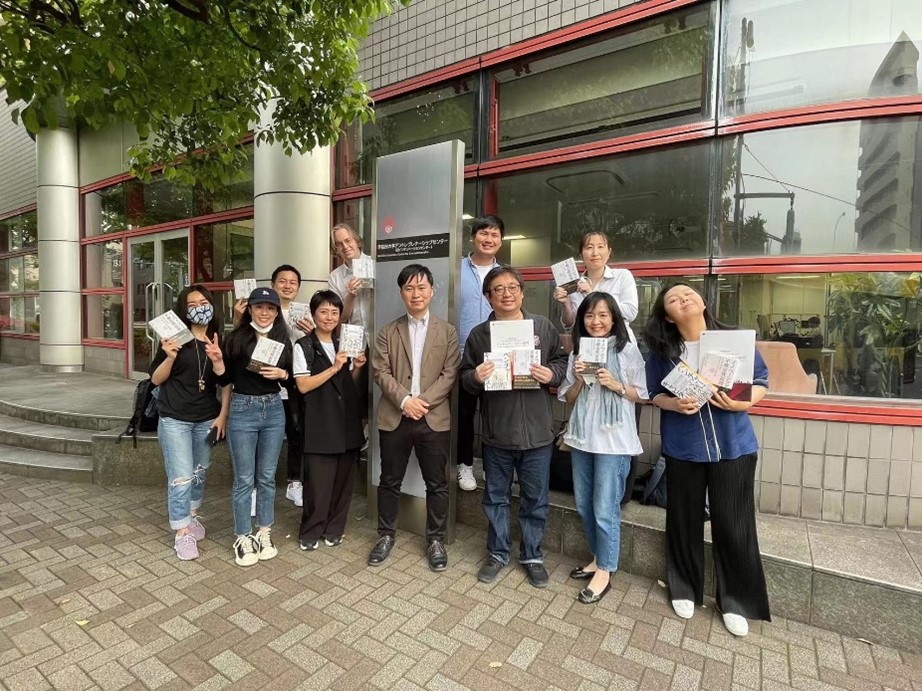王 可心 WANG Kexin (Jasmine) / Waseda University
 [プロフィール] I came from China, and I’m now a second-year student of Waseda University Business School expected to graduate on 2023 March. Before I came to Japan, I got my bachelor degree on both Finance and Engineering and then spent almost 5 years working in UBS (Investment Banking) in Shanghai. For the first 4 years I worked in the department of securitized derivatives as an analyst. Thanks to the internal transfer policy of UBS, I also had an opportunity to work in the Evidence Lab for about 1 year dealing with big data and market research.
[プロフィール] I came from China, and I’m now a second-year student of Waseda University Business School expected to graduate on 2023 March. Before I came to Japan, I got my bachelor degree on both Finance and Engineering and then spent almost 5 years working in UBS (Investment Banking) in Shanghai. For the first 4 years I worked in the department of securitized derivatives as an analyst. Thanks to the internal transfer policy of UBS, I also had an opportunity to work in the Evidence Lab for about 1 year dealing with big data and market research.
When I wrote these sentences, I had just finished the first Japanese presentation ever in my life. Although I was so nervous that I was sweating, I still felt very excited – to be exact, during the two months I have been in Japan, every time I went to the classroom and attended the seminar, I was very excited. This makes me feel even more sorry for myself who couldn’t come to Japan a year ago and had to take online courses.
Why am I here?
Before I came to Waseda, I did not have any experience studying or working overseas. In fact, in my last year of college, I seriously considered studying abroad, but I put it on hold because I received a very promising offer. After five years of work, the idea of “going out to see the world I have never seen” came to my mind once again.
As someone with 5 years of work experience, it was obvious that an MBA was the best way for me to pursue a more international career. And I had visited Japan twice before and really liked the people, culture and food here, it has always been my dream to study and live in Japan. That’s basically why I’m here now.
Everybody Lives by “Selling” Something
Throughout our lives, we all exchange things of value. It doesn’t matter what your work is, hairdresser, accountant, lawyers, engineers, trade, everyone, we all live by “selling” something.
Whether we call ourselves salespeople or not, if we have an idea, product, service, skill, ability, talent or opportunity that we can make a living from and others can benefit from, we need to be able to sell. Whether or not what we exchange is valuable to others should be determined through effective communication, open dialogue and trust. In this complex world, this means we need to ensure that our talents and capabilities are visible to those who need to know us. We need to proactively put ourselves in a position to work with others to earn our value at any level, or we risk being overlooked and losing opportunities.
Taken to an organization wide level, everybody in our zemi has an impact on how we communicate with and engages in the principle of exchange with the broader community, and each other. At this point, I think every one of our zemi members has done a great job. Everyone has been “selling” their different perspectives on issues, their unique talents to get something out of others that themself don’t have.
For me personally, the situation is a bit special because I took both the English zemi and the Japanese zemi, it allows me to have more and deeper communications with Japanese members. The diversity of background and culture gave us the opportunity to share our different experiences and apply them to some of the activities that were conducted during the Zemi.
Last week, we visited the Waseda Entrepreneurship Center which offers consultations on starting a business and provides management support and advice to member companies. It was really a good time to learn how this organization works and what kinds of projects have successfully turned into real business.

不可能を可能にする
最後の部分は、日本語で仕上げることにチャレンジしてみたいです。
物には二面性があって、「ある」と言った瞬間に「ない」が発生し、「ない」が発生した瞬間に「ある」が発生します。つまり、ある人が「不可能だ」と言った瞬間に、反対の意味である「可能である」という概念が発生しているのです。では、なぜ、みんな「不可能である」と思った瞬間に、本当に不可能になってしまうのでしょうか?それは、自分が「不可能である」と思った瞬間に、「可能である」という概念が存在するにも関わらず、自分で、それを探さないからです。
2年前に「いつか日本語でプレゼンをしたり、記事を書いたりするようになる」と言われたら、冗談だろうと思ったかもしれません。こんなに早く日本に馴染めること、日本語で問題なくコミュニケーションできるようになること、一人で日本語の発表ができるようになること、どれも今までなら不可能だと思っていたことですが、たった2ヶ月でたくさんの不可能を可能にしてきました。 卒業まであと1年、成長とともにもっと不可能なことに出会い、それを可能にしていくことを楽しみにしています。
次回の更新は7月8日(金)に行います。